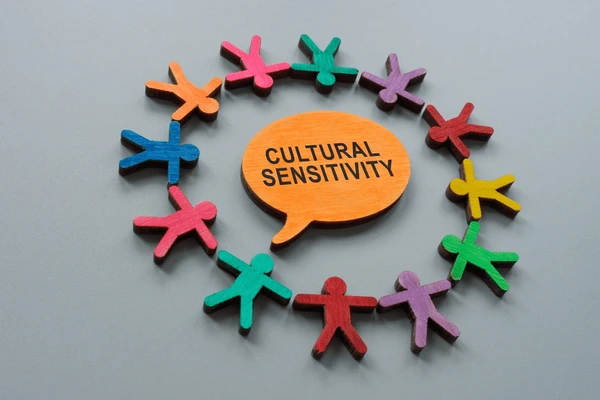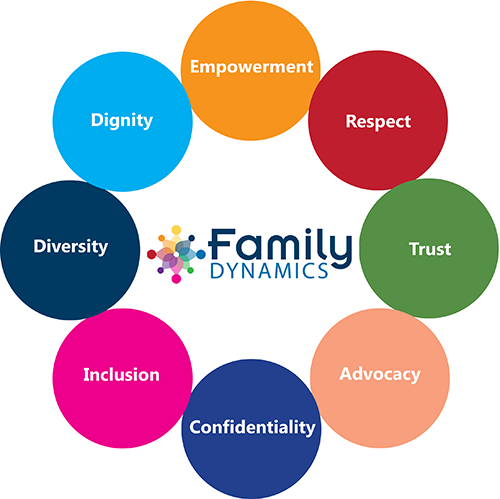Mexico, a country rich in culture and tradition, has emerged as a global hub for surrogacy over the past decade. This fascinating development can be attributed to the nation’s welcoming legal stance, affordable costs, and a deep-rooted cultural respect for motherhood.
Yet, understanding surrogacy in the Mexican context requires more than simply acknowledging these practical aspects.
It demands an appreciation for the cultural sensitivities, communication norms, family dynamics, and diversity that are inherent to the Mexican way of life. This article delves into the unique cultural aspects that shape surrogacy Mexico.
Cultural Sensitivity: How Surrogacy Practices Align with Mexican Cultural Values

Surrogacy, a process in which a woman carries and gives birth to a baby for another person or a couple, is a highly sensitive topic worldwide.
However, surrogacy in Mexico aligns closely with the country’s cultural values. Mexicans hold a deep reverence for motherhood and family, viewing it as a core part of their identity. This sentiment extends to the act of surrogacy, which is seen as a noble and selfless act of love.
In the Mexican culture, surrogacy is not regarded as a commercial transaction but is seen as a supportive act, a gift from one woman to another. This perspective aligns with the cultural emphasis on community and collective goodwill. The surrogate mother is respected and admired for her generosity and courage, echoing the societal values of sacrifice and compassion.
Furthermore, religion plays a significant role in shaping attitudes towards surrogacy in Mexico. The majority of Mexicans are Roman Catholics, a faith that upholds the sanctity of life. While the Catholic Church does not officially endorse surrogacy, many Mexican Catholics believe that helping others have a family aligns with their faith’s teachings of love and kindness. This religious perspective further strengthens the cultural acceptance of surrogacy Mexico.
Communication and Trust: Building Strong Relationships in the Cultural Context of Mexico
Understanding communication norms in the Mexican culture is crucial for building strong relationships in the surrogacy process.
Mexicans value personal relationships and face-to-face interactions, and this preference extends to the realm of surrogacy.
Parents and surrogate mothers often develop a close bond, maintaining regular contact throughout the pregnancy and even after the child’s birth. This level of communication fosters trust, a crucial aspect of the surrogacy process.
In Mexico, trust is not established solely based on legal contracts or professional credentials. Instead, it is built on personal connections and mutual respect.
The surrogacy process, therefore, involves more than just medical procedures and legal formalities. It is a shared journey, one marked by open dialogue, emotional support, and mutual understanding.
Moreover, the importance of trust in the Mexican culture means that transparency is highly valued in the surrogacy process.
Surrogacy agencies in Mexico often facilitate open communication between the parents and the surrogate, encouraging transparency about the surrogate’s health, the progress of the pregnancy, and any potential concerns.
This culture of openness helps ensure that the surrogacy journey is a positive and fulfilling experience for all parties involved.
Family Dynamics: Exploring the Role of Extended Families in the Surrogacy Process

The role of extended families is another important cultural aspect that shapes surrogacy in Mexico.
Mexican society is characterized by strong family bonds, with extended families often living together or in close proximity. These close-knit relationships influence the surrogacy process in several ways.
Firstly, the decision to become a surrogate is often a family decision, rather than an individual one. The surrogate’s family plays a crucial part in providing emotional and practical support throughout the surrogacy journey. They share in the joys and challenges, making the surrogacy experience a collective family journey.
Secondly, the strong family ties in Mexican culture mean that the child born through surrogacy is welcomed into a large, loving community.
The child is not only the biological offspring of the intended parents but also becomes part of the surrogate’s extended family. This connection enriches the child’s upbringing, providing them with a broader network of love and support.
Finally, the role of extended families extends to the intended parents as well. In the spirit of Mexican familial inclusivity, intended parents often engage with the surrogate’s family, fostering a sense of shared responsibility and mutual respect.
This interaction bolsters the bond between the surrogate and the intended parents, contributing to a more fulfilling surrogacy experience.
Celebrating Diversity: Embracing Cultural Differences in the Journey to Parenthood
Surrogacy in Mexico also presents a unique opportunity to celebrate diversity. Many intended parents who turn to surrogacy in Mexico come from different cultural backgrounds.
This diversity brings a wealth of different perspectives, traditions, and experiences to the surrogacy journey.
While cultural differences can sometimes lead to misunderstandings or confusion, they can also enrich the surrogacy experience.
By embracing these differences, intended parents, surrogate mothers, and surrogacy professionals can learn from each other, broadening their understanding and appreciation of the world.
Moreover, the child born through surrogacy benefits from this cultural exchange. They are born into a multicultural environment, exposed to different traditions and values from an early age.
This exposure promotes cultural sensitivity and appreciation, preparing the child to navigate a diverse world.
In conclusion, understanding surrogacy in the Mexican context requires a deep appreciation of the country’s cultural values, communication norms, family dynamics, and diversity.
By embracing these cultural aspects, intended parents, surrogate mothers, and surrogacy professionals can ensure a fulfilling and enriching surrogacy journey.

Jean Smith is a fitness enthusiast and blogger who focuses on fitness and a healthy lifestyle. She is passionate about assisting people in living healthier lifestyles and is constantly on the lookout for new and creative methods to stay fit and healthy. Her articles are excellent resources for anyone interested in improving their health and fitness.
